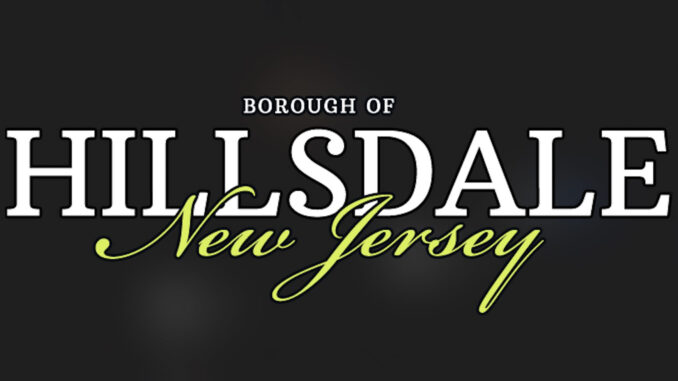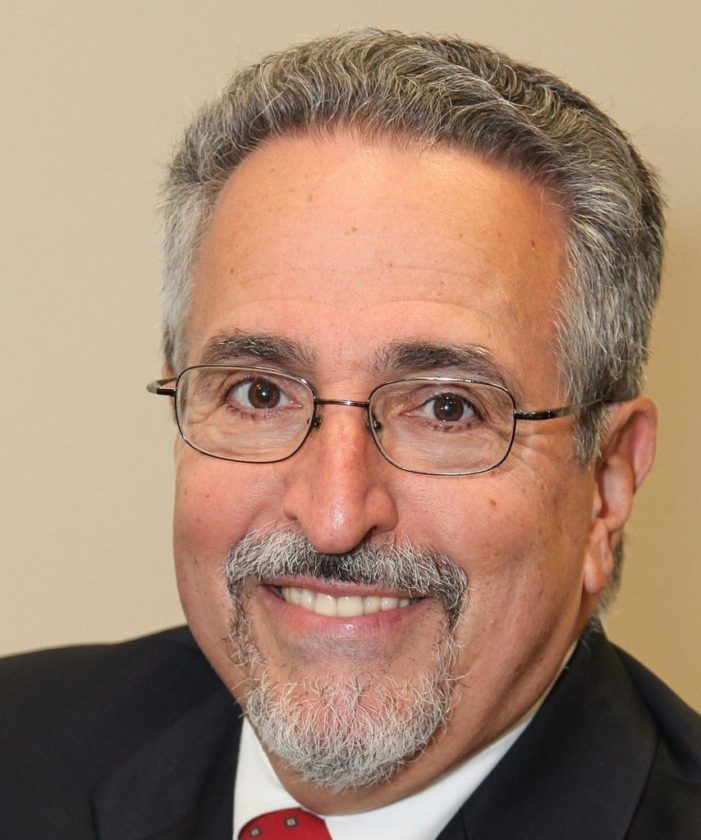
HILLSDALE—New restrictions on the mayor’s role in participating on standing committees, reporting on committee work, and getting the “last word” at every council meeting were approved, 5-1, at an often contentious Jan. 4 Borough Council reorganization meeting
Ruocco has lost “ex-officio” status, no longer an automatic member of standing committees and being cut out of the loop on their meeting times, agendas, and actions.
Councilmembers said the restrictions are aimed at giving themselves an equal voice, ensuring “more cohesiveness” on committees, and delivering “good government.”
To Mayor John Ruocco, it’s a “reckless” move meant as punishment and “can only be viewed as a tyranny of the majority.”
He said he would stay abreast of developments “by having more frequent meetings with the borough administrator and have regular one-on-one meetings with department heads.”
And he said he would work with the borough administrator “to ensure that I continue to be provided with all notices of meetings, agendas, reports and materials as he receives them from the council, but which will be denied to me.”
It’s the latest widening of a divide between Ruocco and the council, which holds the power to further restrict his power over policy and spending.
Councilman Zoltán Horváth, an ally of Ruocco’s, opposed the council bylaw changes, echoing many of Ruocco’s responses in his State of the Borough address.
Ruocco moderates meetings and discussion, but votes only in case of a council tie vote. He also can veto council ordinances, though the council can override him, as happened in 2021 over a redevelopment matter.
At the reorganization meeting, Republican State Sen. Holly Schepisi swore in Abby Lundy and John Escobar, who ran for reelection unopposed.
The council voted, 5-1, with Horváth opposed, to appoint Janetta Trochimiuk council president, replacing Lundy in the role. The council majority is composed of Trochimiuk, Lundy, Escobar, Frank Pizzella, and Anthony DeRosa.
All on the governing body are Republicans. The next council meeting is Jan. 11.

In his State of the Borough Address, Ruocco spoke about a wide range of borough matters, looking back at a challenging 2021 and looking ahead with some optimism.
He led by thanking “all our borough employees, volunteers, professionals and elected officials who gave so much of their time to ensure that the essential services of local government continued throughout 2021, despite the persistent pandemic.”
[See related story this issue, “Ruocco: Relocating DPW a top priority in 2022.”]
But, he said, “The proposed bylaws go further than hampering the information flow to the mayor. They presume to usurp the mayor’s prerogative as the legally designated presider over all council meetings and mandate how he is to conduct the ‘last go-round’ speaking session at the end of each meeting.”
He added, “Considering that Hillsdale — unlike some towns in the valley — has a form of borough government called ‘weak mayor, strong council,’ and that existing state law therefore places tight limits on what a borough mayor can do, the efforts to further restrict the mayor can only be viewed as a tyranny of the majority.”
And he said, “All these restrictions are intended to tie the mayor’s hands and prevent him from performing what other mayors around the state routinely do. The proposed bylaws appear to be punishment for a mayor who has spoken up on behalf of transparency and professional management within the permissible boundaries of the law when he sensed things going wrong. And make no mistake, they have gone wrong and residents see it.”
Ruocco asked, “Why would some council members vote for such reckless changes that reflect insecurity and defensiveness, when council members themselves already control by statute virtually all the levers of power in the borough?”
At the reorganization meeting, Horváth said he was not informed of any meetings for the bylaw changes and that they were “reprehensible.” He said his colleagues behind the change “should be ashamed of themselves.”
Ruocco said this was all done because council did not want him speaking out and continuing his call for transparency in local government.
He recently riled council majority members by releasing the nearly $16 million estimate prepared by DMR Architects on a community center and turf field under discussion by a mayor-appointed temporary Steering Committee.
Ruocco learned the estimate while he participated as an ex-officio member on the Steering Committee, replacing Horváth, who was unable to attend.
While committee members said they had agreed to withhold the estimate’s public release until the Dec. 14, 2021 council meeting, Ruocco didn’t agree, and released it during his mayor’s report on Dec. 7. (See “$16M for center, turf field,” Pascack Press, Dec. 20, 2021.)
Moreover, Ruocco has criticized Steering Committee members for not consulting a mayor-appointed citizens advisory committee that he said should serve as a “focus group,” similar to how the Pascack Valley Regional High School District is conducting its superintendent seach process.
The bylaw changes now bar Ruocco from filling in on a committee until all other council members have been contacted and offered the chance should another council member not be able to make a scheduled meeting.
Most members said they did not like Ruocco always getting a last say at council meetings. Ruocco often held forth and generally did not entertain rebuttals from council members he frequently criticized over their positions and an alleged lack of transparency.
Lundy noted that the bylaw changes were simply “good government” by trying to have three voting members attend a committee meeting, adding that Ruocco “still has his bully pulpit as mayor.”
Ruocco later said he has not bullied or ridiculed anyone.
[The adjective bully is old slang for excellent, wonderful, or admirable. — Ed.]
He expounded on his views in a letter to the editor in the Jan. 10 Pascack Press. He said in part that it was “shameful” that “the mayor is relegated to the back of the bus.”
Trochimiuk told Ruocco that the bylaw changes were “not to penalize you or punish you” and that they allow councilmembers the chance to fill in for members on committees when someone is absent.
She called the mayor’s concluding words at council meetings “sometimes quite explosive” and noted the changes “will make committees more cohesive.”
DeRosa said it’s “frustrating to end the meeting with the mayor always having the last word… We see this as having an equal voice.”
He said where Ruocco sees a “tyranny of the majority,” others see it “as the will of the majority” — and said the changes were made “to seek a less divisive approach to each other.”
Pizzella said that he did not expect the bylaw changes to fix “a breakdown of functioning” by the council, and said he was “very frustrated” that members allow differences of opinion to get in the way.
He called for more civility on the governing body. “There really should be a code of conduct. It would help us to work better together.”
He said, “The crap I’ve put up with from people and because I didn’t act the way they wanted me to act… it’s the lack of civility when people don’t respect each other for their opinions. I wish we’d all try to respect each other better.”
